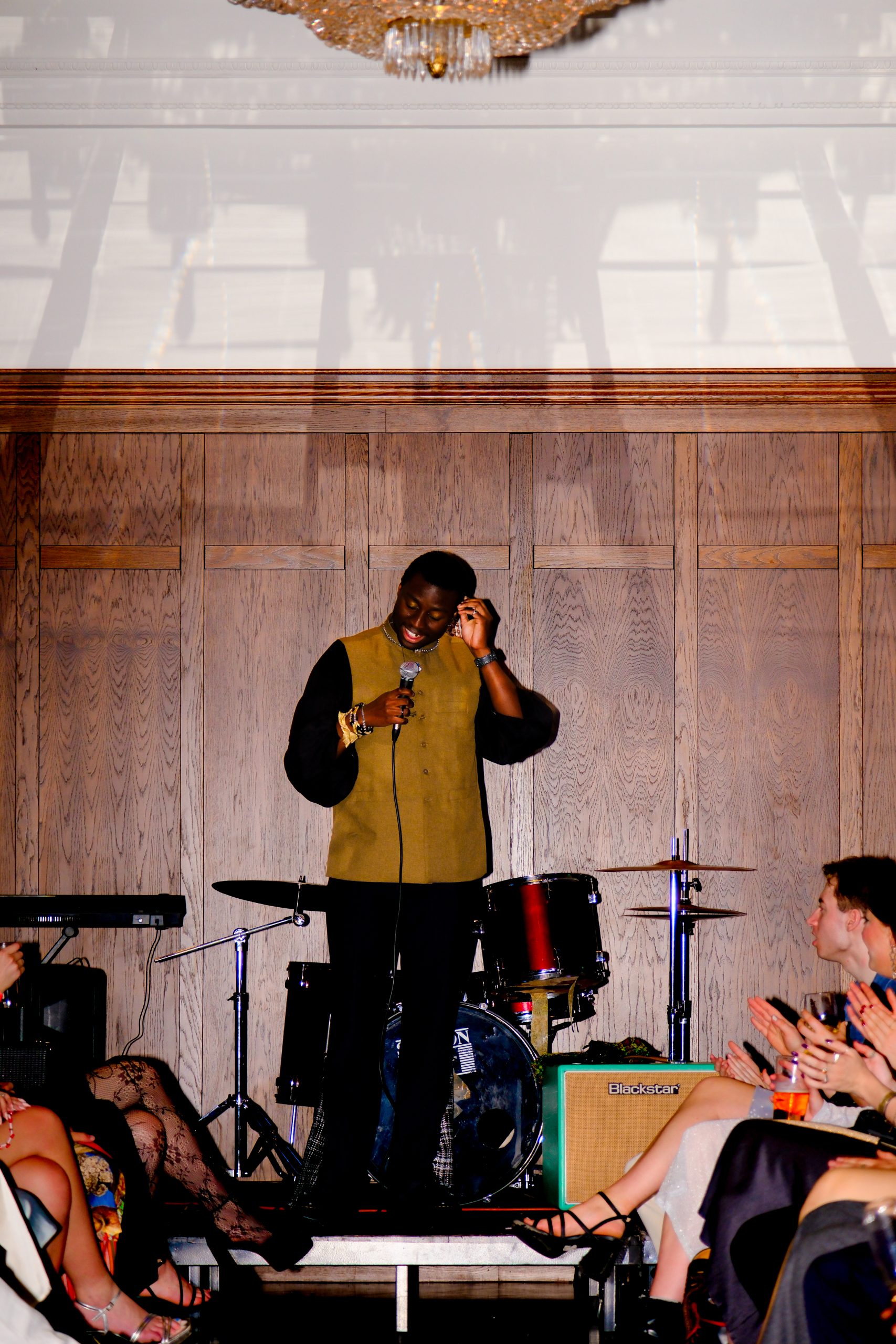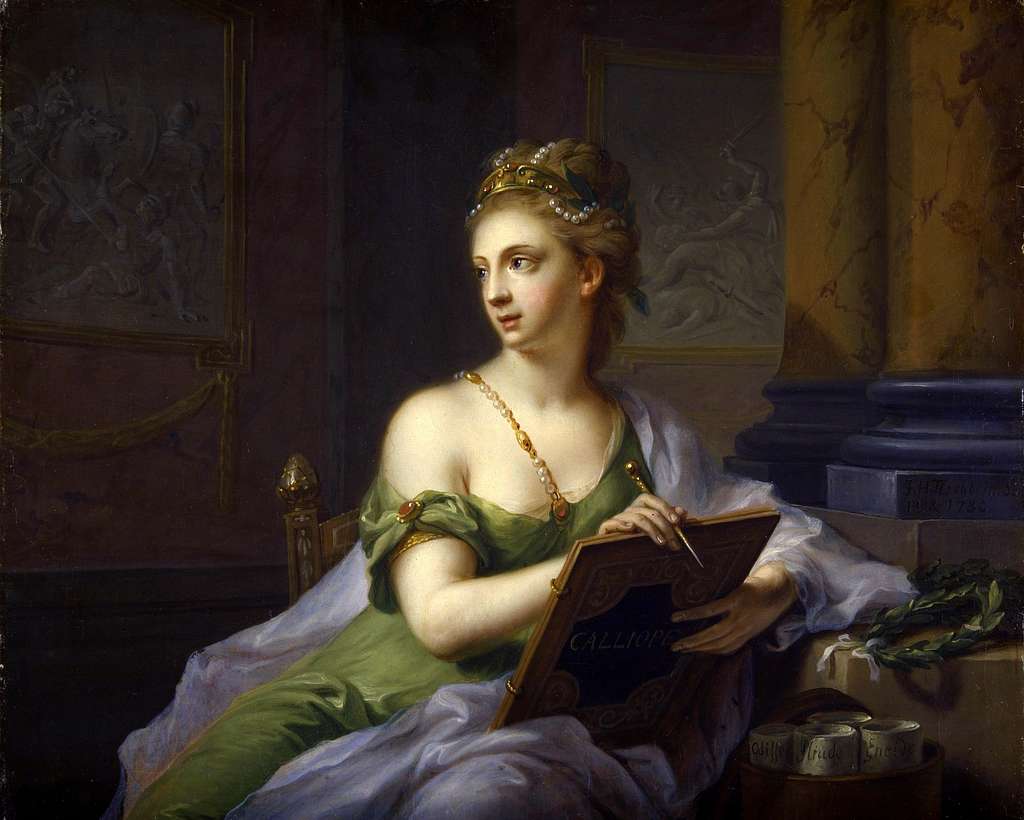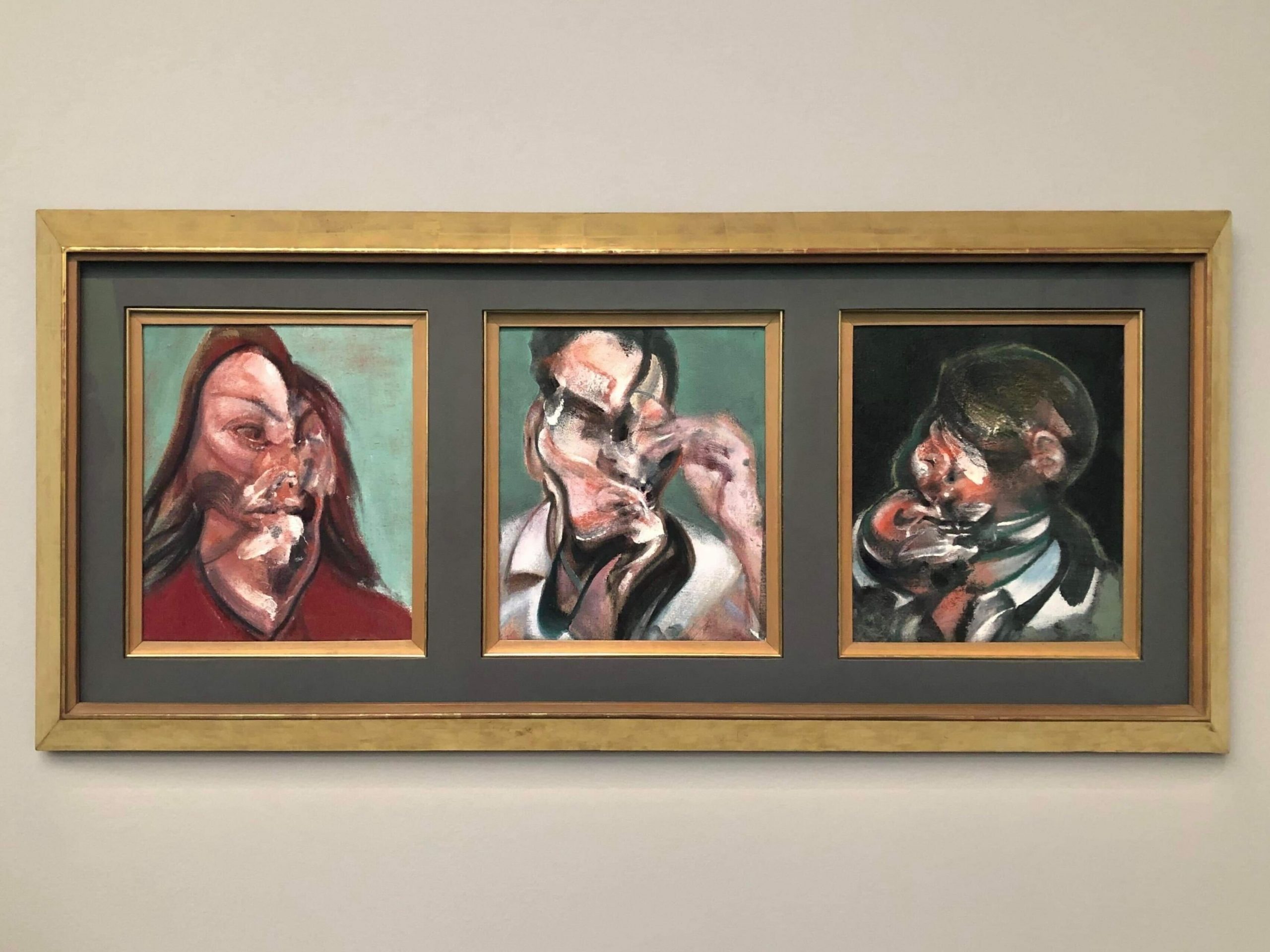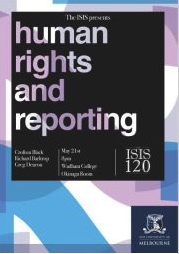
In conversation with: David Akanji, President of the Oxford Fashion Gala

David Akanji wore handmade trousers, which he had repaired only hours before, and an H&M tunic to the Oxford Fashion Gala. Not quite what I expected from this year’s OFG President. Having studied Fine Art at University of the Arts London and worked on the Marina Abramović exhibition at the Royal Academy of Arts as part of the ‘Young Producers Focus Group’, Akanji’s flair for curation was on display at The Randolph last Wednesday. Specialising in painting but changing midway through his course to textiles, OFG is not Akanji’s first catwalk, having created collections during his foundation year largely inspired by Maximillian Davis’ SS21 and AW21 collections. Akanji pulled pieces from this collection for ‘Voyage Into Descent’, inspired by Issey Miyake’s SS22 collection; an “homage” to the designer, echoing last year’s tribute to Vivienne Westwood.
Akanji didn’t expect to be president. Having seen the call for committee members on OFG’s socials, he thought “smash” and applied to be one of the creative directors. “I was doing my Christmas shop in big Asda when I received the email inviting me to be president.” The process was demanding, as the committee only formally convened in Hilary but more impressively, Akanji had to balance presidency with exams this term.
We began by discussing technicalities, how Akanji had “the optimism to say we can get 300 people to the gala,” given only 90 tickets were sold the year before. To facilitate this ambition, Akanji and the committee settled on The Randolph as their venue. The tiled floor and mirrored ceiling complimented the theme and solved the runway issue which arose when all the quotes for staging were “very upsetting”. Forgoing a raised runway also meant that photographing models didn’t result in any Sex and the City-esque upskirting.
The Oxford Fashion Gala is something of a rising star, a baby compared to St Andrews’ or Durham’s catwalks. Akanji credits Durham’s gala as the committee’s “big inspiration”, though The Randolph did not bear witness to an underwear segment. Replicating Durham, Akanji and the committee landed Ace+Freak, Kaytea, Proper, The Curators, and Tom’s Trunks as sponsors; presumably making most ball committees green with envy. OFG also partnered with Reviva and Youni to encourage attendees to opt for pre-loved clothing and promote ‘balling on a budget’ as Oxford’s most glittery term gets underway. Fast fashions brands were considered as sponsors of the gala, but Akanji felt they couldn’t “with integrity partner with them” considering their sizeable carbon footprints, wasteful production processes and exploitative practices. “At what cost” do student organisations bow to greenwashing? OFG sold their 300 tickets without fast fashion sponsorships.
Akanji’s own designs, some of which featured on the catwalk last week, are prime examples of how clothes should be treated as art rather than rubbish. The pieces were created for his portfolio using archival fabric which is readily available at UAL where designers donate excess materials to the textiles department and students can take as much as they want. Akanji relates the excitement of seeing “tags like ‘McQueen, 2001’” when searching for fabric and how this circular use of resources also addresses the considerable expense of buying new fabric.
Akanji’s own approach to fashion reflects the gala’s philosophy as he “mainly” buys second hand. “I don’t think I’ve bought a new piece of clothing,” he considers, “I want to say in the last five years. That’s a lie actually — I did buy Birkenstocks.” We agree this is excusable due to the “toe contact.” On balance, Akanji thinks that “we are in an age where people don’t really buy new stuff anymore,” considering the relative affordability of Vinted and Depop. Akanji does admit that he bought an H&M tunic from the women’s section for the gala but “returned it because it was like 40 quid.” He hid the label on the night and took the tunic back the next day. “I had the hardest time choosing my outfit because unfortunately I big myself up too much, everyone was like ‘David what are you wearing?’ and I was like ‘I can’t tell you’ but I couldn’t tell them because I didn’t know.” The perils of being president. On the day of the gala, Akanji found himself in the back of a car, speeding down the dual carriageway to pick up lights from Botley, darning a hole in a pair of trousers which he had made himself. He tells me that the show had to be pushed back by half an hour “because of the lights” though I wonder whether “lights” are really code for “trousers”.
Speaking about the Oxford fashion scene, Akanji wonders whether academic pressure and perhaps the “fear of not being taken seriously” curtail creativity. He sees consumerism as the “death of creativity” and despairs at the status symbol which certain pieces have become in the Oxford bubble —naming no names. There is also the ever-present question “would I go to a tutorial in this?” Naturally, we move on to the Met gala as I ask about the commentary on OFG’s Instagram stories which Akanji credits to one of the Creative Directors, Zaira, confessing that he has “mixed feelings” about the Met because “it always feels rather dystopian” thanks to it being “ludicrously expensive.” Cue images of Suzanne Collins’ Capitol.
Crucially, Akanji tells me that the committee “wanted to represent real people” on the catwalk this year and inclusivity was a priority when briefing designers. The focus last week was on art not the harmful ‘standards’ of the fashion industry and clothes were made to be adaptable with ties in the back and versatile fabrics. Akanji wasn’t concerned about having creative control, seeing his role when viewing designs as that of the audience. He does name Axel Lee’s designs as his favourite, striking with a jeweled headpiece and silver foil top.
“What are your hopes for next year’s gala?”
“I hope it gets bigger; I hope it attracts people who aren’t necessarily interested in fashion.”
That’s your sign. See you next year. ∎
Words by Isabelle Proctor. Image courtesy of Olivia Cho.







